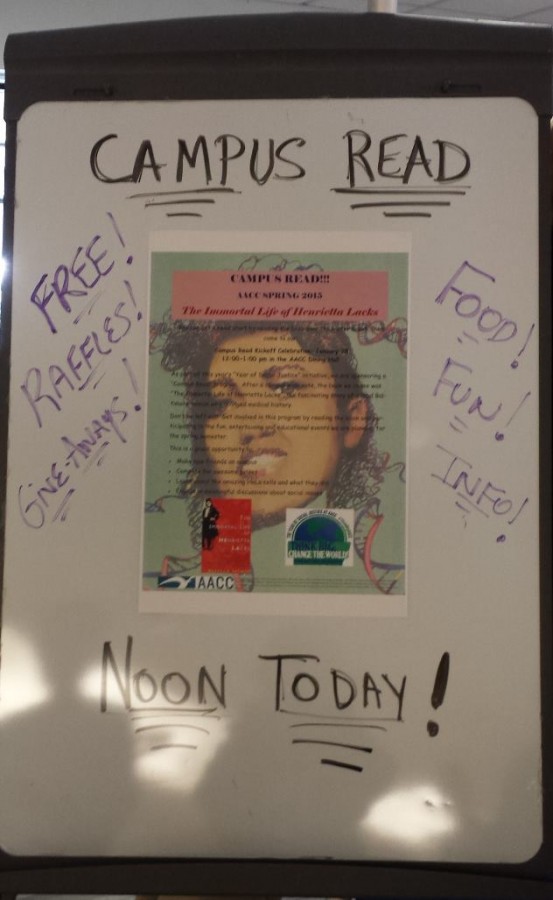Campus Read
February 12, 2015
“The Immortal Life of Henrietta Lacks” by Rebecca Skloot will be discussed by students on a weekly basis throughout the months of Feb. and March.
This Campus Read is organized by the Campus Read Committee as an initiative to generate campus wide support for the Year of Social Justice. In the weekly meetings, students will be invited to form reading circles in teams of five led by faculty from various disciplines, says English professor Regina Johnson, co-chair of the Campus Read Committee.
After winning the raffle at the kick-off event and getting a free copy of the book, Clyde McBride, a student of AACC with an undecided major, has decided to read it. He is looking forward to the discussion meetings.
“I really need to read more…I’m actually going to try to engage in the event,” said McBride. “That’s one of the main reasons I want to do it— it would probably be a good chance to make new friends and to change. I do need to change myself, change the stuff that I do, the people I hang out with, and this will be a good opportunity to do it.”
The book calls people to revise their ethics and think about the injustices of the medical industry at the time and the treatment of African Americans.
“What I liked best about the book was, first of all, the fact that [Henrietta Lacks] was a go-getter,” said Sharon Batson, who has read the book and attended the kick-off. “You know, during that time, for her to even put her trust in Johns Hopkins even though there was so much fear at that time about medical care, she went to them for help because she wanted something better for her family and for herself.”
Johnson wants AACC’s students to get something worthwhile out of this book, and to connect to the Lacks family. She also wants them to know Skloot’s story.
“She’s a success story and it all began many years ago,” said Johnson, “when a teenaged Skloot was failing a community college Biology course and her professor introduced her to the HeLa [Henrietta Lacks] cell and the fact that they came from an African American woman.”
Batson says the book is definitely worth reading not only for the story, but for the writing, too.
“I think [Skloot] really got into it, so it became something she was personally invested in…I hope the students do read it,” said Batson.












